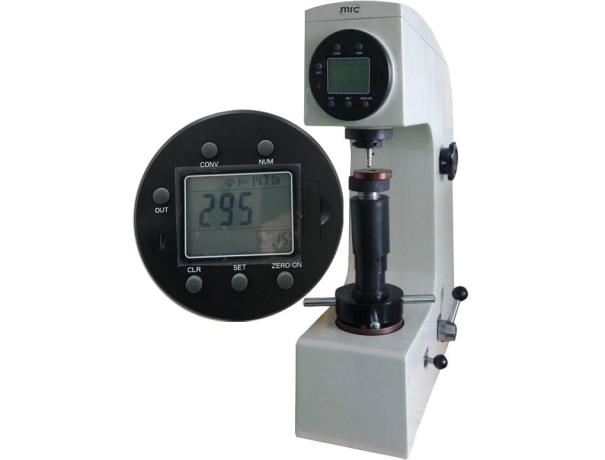Hardness testers are instruments used to determine the hardness of materials, which is a measure of how resistant a material is to deformation, particularly permanent deformation, scratching, cutting, or abrasion.
The hardness of a material can provide insights into its strength, durability, and wear resistance. Understanding these properties is essential for applications in manufacturing, construction, and quality control.
Applications of Hardness Testers
Hardness testers are utilized across various industries to ensure the quality and reliability of materials. Some of the key applications include:
Quality Control in Manufacturing
In manufacturing, ensuring the material hardness meets specified standards is crucial for product performance and longevity. Hardness testing allows manufacturers to verify that materials such as metals, plastics, and ceramics possess the required properties before they are used in production.
Construction and Engineering
In construction and engineering, materials are subjected to significant stress and wear. Hardness testing helps in selecting materials that can withstand these conditions, ensuring the safety and durability of structures like bridges, buildings, and machinery.
Research and Development
Researchers use hardness testers to study new materials and improve existing ones. By understanding the hardness of a material, researchers can infer other properties like tensile strength, ductility, and toughness, guiding the development of advanced materials with superior performance characteristics.
Automotive and Aerospace Industries
In the automotive and aerospace industries, materials are exposed to extreme conditions. Hardness testing is essential for selecting materials that can endure high stress, temperature variations, and wear. This ensures the reliability and safety of vehicles and aircraft.
Advantages of Using Hardness Testers
Non-Destructive Testing
Most hardness testing methods are non-destructive, meaning they do not significantly alter the material being tested. This is advantageous for testing finished products or materials that are expensive or difficult to produce.
Speed and Efficiency
Hardness testers provide quick and reliable measurements, making them ideal for high-throughput environments like production lines. This efficiency helps in maintaining consistent quality control and reduces downtime.
Versatility
With various types of hardness testers available, virtually any material can be tested. This versatility allows for comprehensive testing across different industries and applications, from metals and plastics to ceramics and elastomers.
Accuracy and Precision
Modern hardness testers are equipped with advanced technologies that enhance measurement accuracy and precision. This ensures that the results are reliable and can be used to make informed decisions about material selection and quality assurance.
Choosing the Right Hardness Tester
When selecting a hardness tester, several factors should be considered to ensure the best fit for your specific needs:
Material Type
The type of material you need to test will largely determine the appropriate hardness tester. For instance, metals might require a Rockwell or Brinell tester, while polymers might be better suited for a Shore hardness tester.
Test Environment
Consider the environment in which the testing will be performed. For laboratory settings, precision instruments like Vickers or Knoop testers might be ideal. For on-site testing in a manufacturing facility, more robust and portable testers may be necessary.
Accuracy Requirements
Different applications may require varying levels of accuracy. High-precision applications, such as research and development, may necessitate the use of microhardness testers, while general quality control might be adequately served by Rockwell testers.
